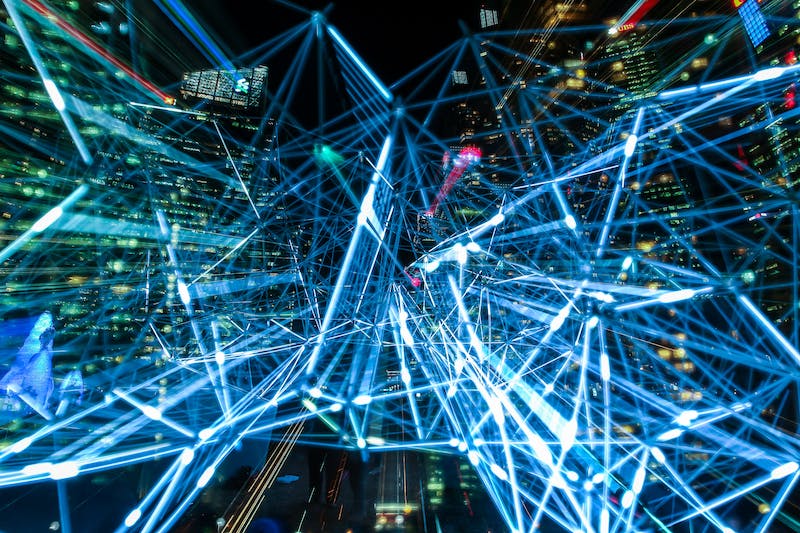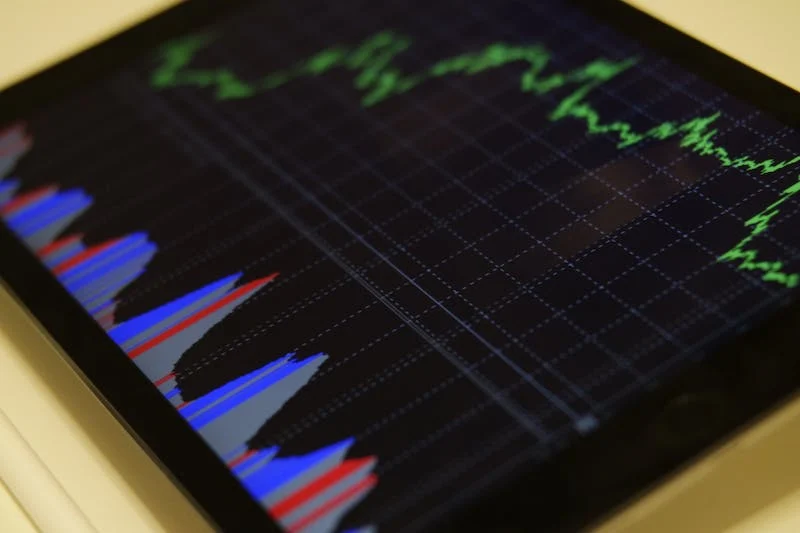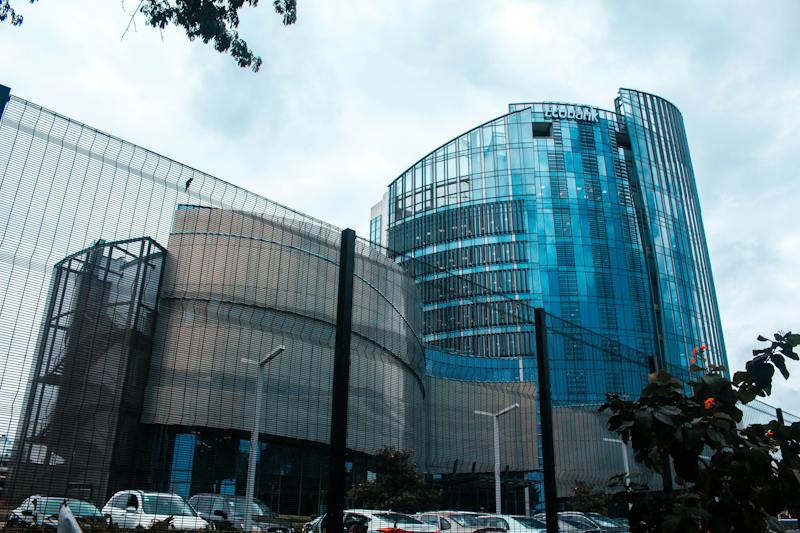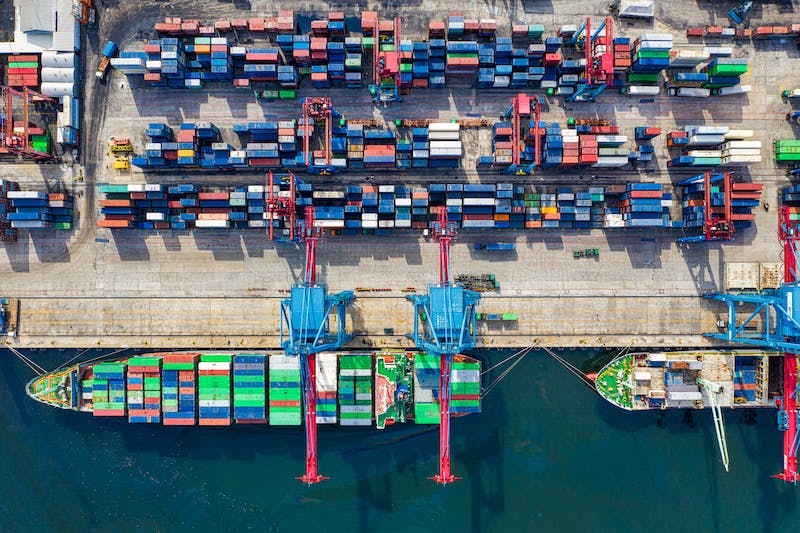
The term “metacrisis” may sound unfamiliar to many, but it is a concept that has been gaining more attention in recent years. It refers to the idea that our world is currently facing a crisis on a meta-level, encompassing multiple crises within different aspects of society. From environmental degradation to political upheaval, these crises seem to be interconnected and escalating at an alarming rate.
In the midst of our fast-paced and ever-evolving world, it is becoming increasingly evident that we are on the brink of a metacrisis. Essentially, humans have spent the last 150 years lining up dominoes on end – dominoes of technological advancements, political turmoil, and environmental degradation, and now we stand at the precipice, waiting for the first domino to fall – thus toppling all the others.
There is no denying that the world is changing faster than humans seem to be able to manage in a reasonable way. There are so many “hot spots” and “irons in the fire”, all at the same time, that it’s hard to even keep track of them, much less manage them responsibly.
Each potential crisis that we have set up is linked, by proximity, with the crises in front of and behind it leading to an interconnectedness that ultimately builds a web of polycrises and influences that, to some degree, define and redefine one another. These interconnected crises are collectively referred to as metacrisis or polycrisis and the underlying question for today’s interwoven challenges is whether or not we can problem-solve fast enough to prevent catastrophe.
To fully understand the complexity of the current situation, it’s important to first break down what a metacrisis really is. This term, introduced to us by philosopher Jean Gebser, designates a crisis of monumental proportions, affecting all dimensions of our global society. It signifies a profound and impactful shift that triggers a domino effect, influencing the economic, cultural, and political domains of our existence. Right now, the consensus among experts is that we’re teetering on the edge of a novel metacrisis, primarily triggered by swift societal changes, volatile geopolitical situations, economic and resource mismanagement and the final realization of the long-held plans of an elite class.
Some have proposed that metacrises/polycrises have happened before, most notably the 1930s Great Depression and democratic collapse that led to the Second World War. But clearly, the line of dominoes that we have set up since then is much bigger and more complex. We currently are looking at, most notably, crises in no less than 12 different areas, all happening at the same time. Which domino will fall first leading to a triggering of the fall of the others and a total collapse? Let’s take a cursory look at some of these dominos to see if we can figure it out. We will examine the following factors:
- Undeniable Climate Concerns
- The Powder Keg of Geopolitics
- The Growing Concerns About AI
- The Dependence on the Internet and the Internet of Things
- The Precipice on Which the Economy Currently Teeters
- The Thin Ice of Banking and Finance
- Medical and Healthcare Concerns
- Supply Chain Fragility
- Dwindling Resources
- Infrastructure Fragility
- Social changes
- A Growing Elite Class
The Undeniable Climate Concerns

Climate change is more than a looming threat, it’s an ongoing crisis. The repercussions are evident in the unprecedented rise in global temperatures and sea levels, as well as in the increased frequency of extreme weather events.
However, it’s not just Mother Nature who pays the price. Our societies and economies also bear the brunt of these changes. Climate change has a domino effect on our world, leading to displacement of communities, particularly those in low-lying or coastal areas.
This displacement puts pressure on resources and infrastructure, leading to economic instability. Furthermore, the worsening climate crisis exacerbates global inequality as it disproportionately affects developing nations and marginalized communities.
The climate crisis is not just an environmental concern but a humanitarian one. Our approach to climate change affects the future of our societies, economies, and the world at large. It is, undoubtedly, a concerning domino in our line-up of global concerns.
The Powder Keg of Geopolitics

In an increasingly interconnected global landscape, geopolitical tensions have the potential for significant consequences. The aggressive back and forth of current geopolitical struggles, causes instability, international conflicts, and trade disagreements, and can lead to widespread upheavals.
For instance, a political dispute between two nations can quickly escalate, causing turmoil in global supply chains. The consequences are far-reaching, influencing not only the economies of the involved nations but also rippling out to the world at large.
Such disruptions can impair economic stability and escalate social stresses, creating an unstable environment with the potential for further conflicts. As technology and digital connectivity grows, so does the sphere of influence for each geopolitical decision, underscoring the critical nature of maintaining diplomatic relations and fostering mutual cooperation.
The geopolitics of our modern world is indeed a powder keg, where one spark can ignite a chain reaction, putting the entire global system at risk. It is essential, therefore, that we strive for peaceful resolutions and robust international relations to prevent this first domino from falling.
The Growing Concerns about AI

The emergence of Artificial Intelligence (AI) has signaled a new era in our technological evolution. AI’s incredible potential is undeniable, from enhancing efficiency to unlocking new possibilities across various sectors. Yet, alongside these advancements lie concerning risks that require our attention.
As AI continues to integrate deeper into our lives, job displacement becomes a pressing concern. Roles once performed by humans could be overtaken by machines, leading to a significant disruption in employment patterns and economic stability.
Privacy, too, is becoming a concern. With AI’s capability to process massive amounts of data, the potential for misuse raises questions about the safeguarding of personal information and our collective right to privacy.
The prospect of AI growing beyond human intelligence and capabilities and then expanding into a wider landscape like blockchain and 5G poses very serious concerns and is something that could quickly grow out of control.
Thus, as we continue to navigate the uncharted waters of AI development, the need for thoughtful regulations, ethical considerations, and strong safeguards becomes paramount. Our approach to AI’s evolution will be a determining factor in whether it serves as a beneficial tool or a disruptive force in society.
Our Dependence on the Internet

The advent of the Internet of Things (IoT) has revolutionized our daily lives, offering unparalleled convenience and efficiency. From smart home devices to interconnected transportation systems, the influence of IoT is immense. Yet, it’s essential to acknowledge the vulnerabilities that accompany this extensive digital dependence.
The risks associated with cybersecurity breaches pose ever-increasing threats, impacting individuals, businesses, and even national security. Imagine the disruption of vital services, or the exposure of sensitive personal or corporate data. It’s not merely an issue of privacy but of trust and security in our digital society.
Additionally, the potential for internet outages – whether due to technical failure or deliberate shutdowns – intensifies this digital vulnerability, threatening to destabilize societies and economies alike. A sudden halt in digital connectivity could disrupt every aspect of our lives, from communication and commerce to healthcare and transportation.
This widespread interconnectivity, while bringing tremendous benefit, also highlights our collective vulnerability in the face of potential digital disruptions.
This digital dependency represents yet another domino, precariously balanced and capable of causing a ripple effect through our interconnected society.
The Precipice on which the Economy Teeters

The stability of our economy is, unfortunately, more illusion than reality. We have all seen the economic downturns brought about by the pandemic, the impacts of climate change, and geopolitical unrest.
This delicate balance of fluctuating markets, soaring debt levels, and economic inequality is precariously perched on a razor’s edge. The fallout from a sudden economic collapse should be a terrifying thought. A significant economic event could plunge millions into poverty, drastically impact employment rates, and cause widespread instability.
And the ripple effects would extend far beyond our bank accounts, leading to escalating social stresses and potentially contributing to a rise in crime rates, mental health issues, and societal discontent.
While economists and policymakers spin their webs of lies about the economy, it’s essential for us as citizens to understand the potential economic domino that could fall at any moment and change the world forever.
The Thin Ice of Banking and Finance

Our banking and finance systems are both intricate and fragile. A testament to this fragility was the financial crisis of 2008, which sent shockwaves through global economies and communities.
Fast-forward to the present day, and we find ourselves in a world where the potential consequences of another financial collapse are quickly looking like a reality: businesses going under, savings evaporating, a sudden surge in unemployment, and an amplified disparity between the rich and the poor.
This kind of fallout can lead to widespread social stresses and a potential increase in societal unrest. It’s a game of dominoes where banking and finance represent a crucial piece, teetering on the brink.
The Coming Medical and Healthcare Crisis

The wheels of our healthcare systems are squeaking under the weight of several mounting pressures. With the cost of medical services steadily rising, affordable healthcare is becoming increasingly elusive.
Coupled with this is the challenge of catering to aging populations and the surging prevalence of chronic illnesses – factors that further strain the healthcare resources.
It’s as though the world is caught in a high-stakes game of medical Jenga, and the blocks are slowly but surely being moved. The pandemic has only amplified these issues, revealing cracks in healthcare systems worldwide and stretching them to their limits. Inadequate health infrastructures, limited access to medical services, and disparities in healthcare provisions have been brought into sharp focus.
It is also becoming quite clear that the previous pandemic is far from over and a new one seems to be looming on the horizon. Our medical needs are growing but our ability to provide for those needs is shrinking. We are one pandemic, supply chain crisis or infrastructure failure away from catastrophe.
Will it be this domino that triggers a cascade of consequences that we may not be fully equipped to handle. The healthcare crisis, undoubtedly, adds another precarious domino to our line-up of global challenges.
The Supply Chain; A Disaster Waiting to Happen

The intricate web of global supply chains is now more precarious than ever. This marvel of modern trade, which seamlessly transports goods from factories to retailers, and eventually to consumers across the globe, stands threatened by a number of risks.
Natural disasters, fueled by climate change, can easily disrupt this delicate system. Trade wars and geopolitical unrest add another layer of instability, putting the constant flow of goods in danger. Even labor disputes at a local level can ripple across this network, resulting in product shortages and inflated prices.
These disruptions not only impact the businesses directly involved but also affect consumers and economies worldwide. An everyday item, taken for granted on our shelves, might suddenly become scarce, illustrating the profound interdependence inherent in our globalized world.
Such a scenario could also lead to increased social stresses, as essential goods become hard to come by, and communities struggle to adapt. This domino in our interconnected global society is just waiting to fall at any moment.
Dwindling Resources

The recent flood of progress and prosperity comes with a significant vulnerability – the alarming rate at which our planet’s finite resources are dwindling. As our societies expand, and consumption skyrockets, we find ourselves grappling with the harsh reality of resource depletion.
From the fuels that power our industries to the water that sustains life, these invaluable commodities are being consumed faster than they can regenerate. This rapid depletion creates a tension that threatens to spark conflicts over resource allocation and exacerbate existing economic disparities.
Furthermore, as certain resources become scarce, prices surge, putting essential goods and services out of reach for many.
Scarcity risks triggering a chain reaction that could disrupt societal stability and economic prosperity. In this Jinga-like game of dominoes, dwindling resources represent an unstable piece. It’s a global concern that we, as a collective, need to urgently address, lest it becomes the first domino to fall, leading to a cascade of complications we may not be prepared to handle.
The Fragility of the World’s Infrastructure

We live in a world where the infrastructure that we rely on daily, such as electrical grids and transportation systems, is beginning to show its age. These essential systems aren’t just old; they’re often unprepared for the increasing onslaught of extreme weather events and natural disasters, both consequences of our changing climate.
The thought of infrastructure collapse is intimidating; it would incapacitate societies and economies, slowing everyday life and commerce to a halt. Power outages could leave entire cities in the dark, while the failure of transportation systems could paralyze logistics and supply chains.
If not addressed proactively, the fragility of our infrastructure could potentially trigger a domino effect, affecting various sectors and causing widespread disruption. Our response to this issue will be a determining factor in our collective resilience in the face of challenges, playing a key role in ensuring the first domino doesn’t fall.
The Impact of Societal Changes

Throughout human history, societal shifts have consistently been a guiding force in steering the course of the world. Now, more than ever, they are acting as key players in the shaping of our current predicament.
We are faced with rapidly evolving values and morals, quickly changing social norms, growing ideological divides, radically different political passions and a growing dissatisfaction with the status quo.
What’s more, the pace of technology’s progress is particularly concerning. This evolution is transforming the ways that we connect with one another, conduct business, and ultimately, how we live our day-to-day lives.
This unfolding societal transformation, while it may seem innocuous to most, is key to understanding the looming metacrisis. It is an important domino in the game that we are all playing and demands our attention before one of these social components becomes the first domino to fall.
The Rise of the Elite Class

Alongside the significant societal transformations, a new influential elite class is emerging. This group, whether new money or old money, is beginning to exert notable dominance over our social structures. Their control is not just measured in monetary terms, but also extends to the decision-making processes, thereby creating a stark difference between the haves and the have nots and underlines the deepening socio-economic divide
The elite class’s expansion is resulting in a power imbalance, with a handful of individuals holding the reins of significant wealth and influence. This widening gap between the elite and the average citizen is a critical component of the brewing metacrisis.
As this group of people grows in power and influence within the societal structure, it widens inequalities and disrupts the balance of power. Understanding the rise and impact of this elite class is an important part of any examination of the metacrisis.
The growing economic and social divide caused by the expansion of the elite class, the consolidation of their power and influence and the inevitable “God complex” that is increasingly evident among their ranks may not be the domino, itself, that first falls but the effects of this reassertion of an aristocratic social structure, where we all become tenant farmers and indentured servants, may certainly be a pressure on the masses that causes a social blowback – possibly being the first domino to fall.
Turning Crisis into Opportunity

The metacrisis, while imposing daunting challenges, also opens up pathways for transformative solutions. By exploring its foundational elements, we can strategically formulate best responses.
The understanding of ourselves and of the world has never been more of an existential issue than it is today. If we don’t act quickly and wisely, we may not have another opportunity to save ourselves.
Every challenge can be seen as an opportunity for growth and change. No matter how hopeless the situation currently seems, I say it is a historical opportunity to become better as individuals and as a species. So, let’s join together and solve this problem before it becomes unsolvable.